By the time you read this, you will have seen many public tributes to Judy Heumann, from her friends and colleagues to Presidents of the United States, honoring her amazing life and the impact that she had on the world.
The thoughts that I want to share here are both professional and personal, although, as with many activists, those parts of my life are really just one.
I don’t remember specifically the first time I met Judy, probably in Berkeley, sometime in the 1970s, when she was part of a group of people forming the first independent living center, which was at that time a drawer in somebody’s file cabinet. Who knew that those people were planting seeds that would so dramatically change the world? I was an undergraduate student at the University of Berkeley, where I was also co-founding an organization, the Berkeley Outdoor Recreation Program (BORP), which ensures that people with disabilities have the same opportunities in recreation and sports.
Many years later, in 1981, after I co-founded Mobility International USA (MIUSA), Judy spoke to and met many people with disabilities from around world who came to MIUSA international exchange programs in Eugene, Oregon, to learn about, experience and share strategies for achieving disability rights. Our participants also felt Judy’s power from watching the 504 video, and hearing the story of the 504 demonstrations and sit-in that took place in San Francisco.
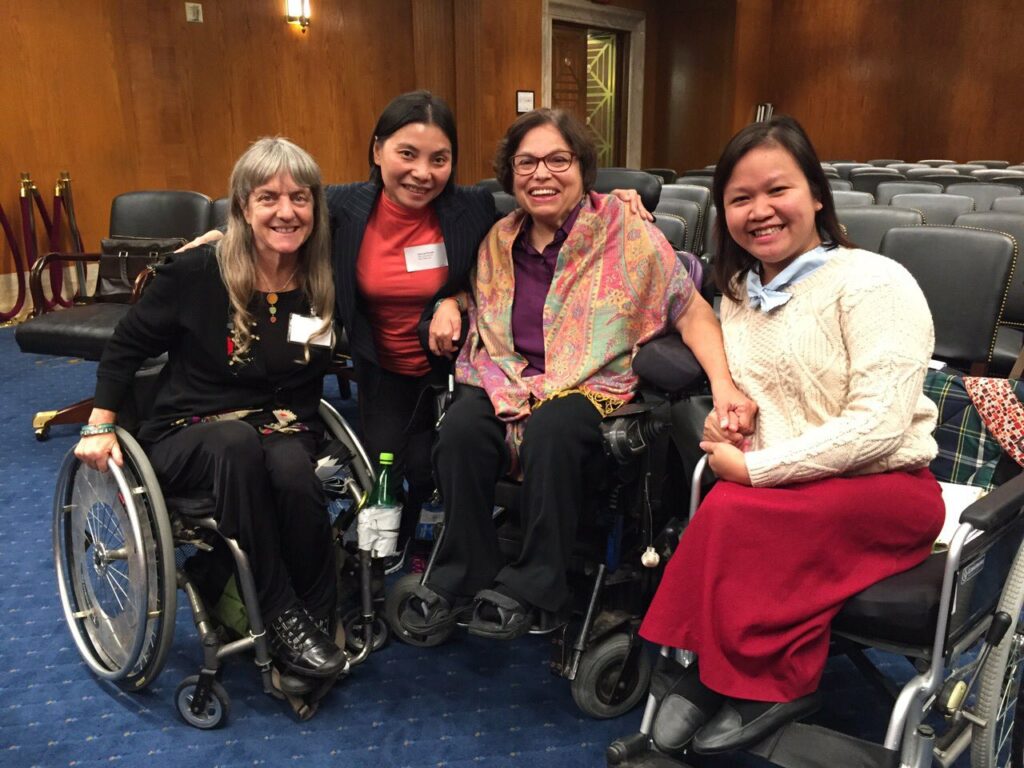
Judy was in Beijing when MIUSA co-organized an international disabled women’s conference in 1995. She also spoke to disabled women leaders from around the world who have participated in MIUSA’s ten Women’s Institutes on Leadership and Disability (WILD), which have been catalysts for women with disabilities to become global leaders.
I know that many of our MIUSA alumni from more than 135 countries are mourning Judy’s loss tonight, as they have very powerful memories of her presence and personal connections with them.
Some of my personal connections with Judy also involve MIUSA. A colleague just sent me a video of an interview with Judy, where she spoke with a devilish glint in her eye about how she met her husband Jorge. Jorge had come to Eugene, Oregon, on a MIUSA U.S. / Mexico leadership exchange program, and Judy was one of our featured guests. As Judy put it, she was attracted to Jorge’s shoulders, and he was clearly attracted to her as well. I must say, I did intervene a bit: I engineered an opportunity for Jorge to spend the evening at my home, where Judy was staying. I’m not sure how much English Jorge knew, or whether Judy knew much Spanish, but let’s just say it didn’t seem to matter. Judy reminded me many times of that night, and my contribution to her long and happy marriage to Jorge.
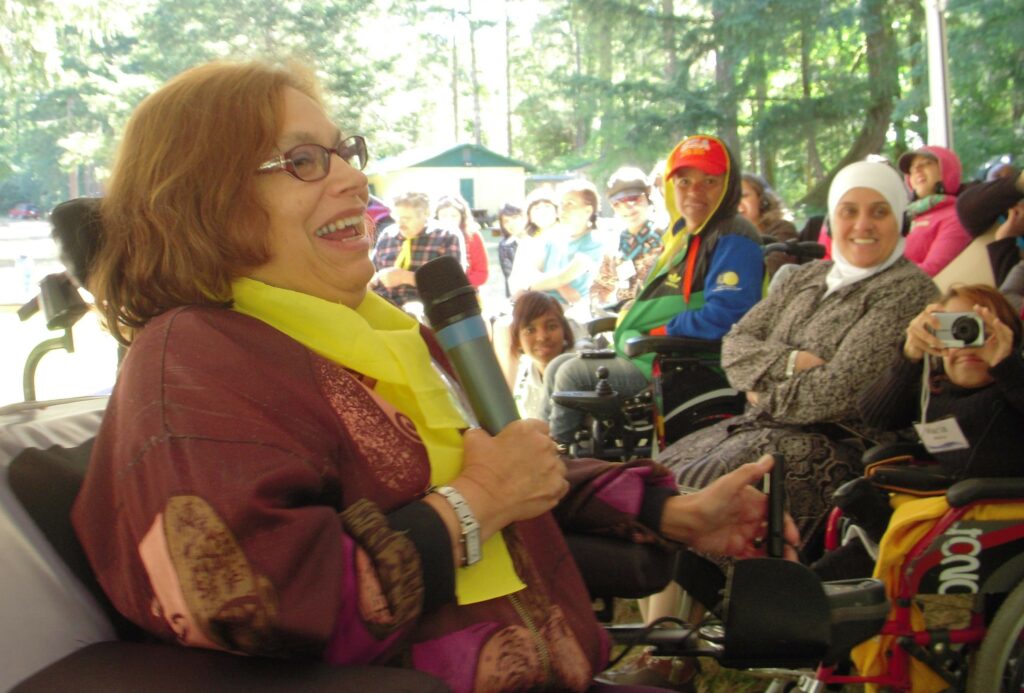
Another very powerful, personal connection that Judy and I had was that both of our parents had come to the U.S. from Europe because of Nazi persecution. For both of us, it was our parents who gave us our self-confidence, and who shaped the lives that we both pursued in terms of disability justice. Every time Judy spoke about her parents, or I spoke about mine, tears came to both of our eyes. It was just part of who we are and what we hold sacred.
Judy and I also shared a love for Judaism, and spoke much about Tikkun Olam, the Hebrew words for mending or repairing the world, a concept also held by many other people who feel spiritually moved to work for justice. Judy and I often would send each other “Shabbat Shalom,” messages, the Hebrew greeting shared at the beginning of Friday night religious services. As I write this, I can hear Judy calling me and asking me what my plans are for Passover? Who is coming over for the traditional Passover Seder, what was I making for dinner?
Judy called me Susie, a term that many of my Berkeley friends still use, which I find endearing, as it reminds me of a bold and beautiful time when many disabled activists gathered in Berkeley. The ideas formed there became the independent living movement and led to disability rights legislation and policy that has changed the lives of millions of people, not only in United States, but throughout the world.
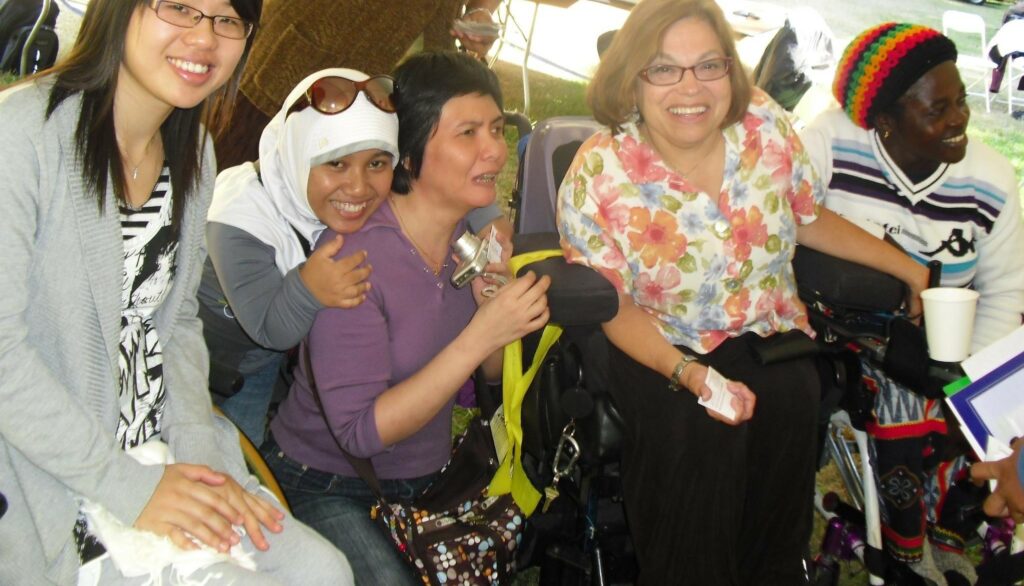
There are many amazing activists from that time, too many mention here, but I know they know who they are as they read this. You may not know all their names. But Judy was one of those leaders, and she was able to capture their collective message and amplify it loud and clear.
In addition to her many accomplishments that are being shared in the news and social media today, I think Judy’s strongest legacy lies in her powerful words and her 24/7 work commitment to the cause of justice. Everyone who met Judy felt her passion. The best way we can continue Judy’s legacy is to carry on that work.
Judy also leaves a legacy of connections with countless people, with and without disabilities. I am almost certain that nobody knew more people around the world. We know that Judy’s presence and powerful words motivated activists and allies to pursue even more vehemently their strategies for disability justice. Many of us throughout the world are having similar thoughts and feelings about the times and moments we have met Judy and heard her speak.
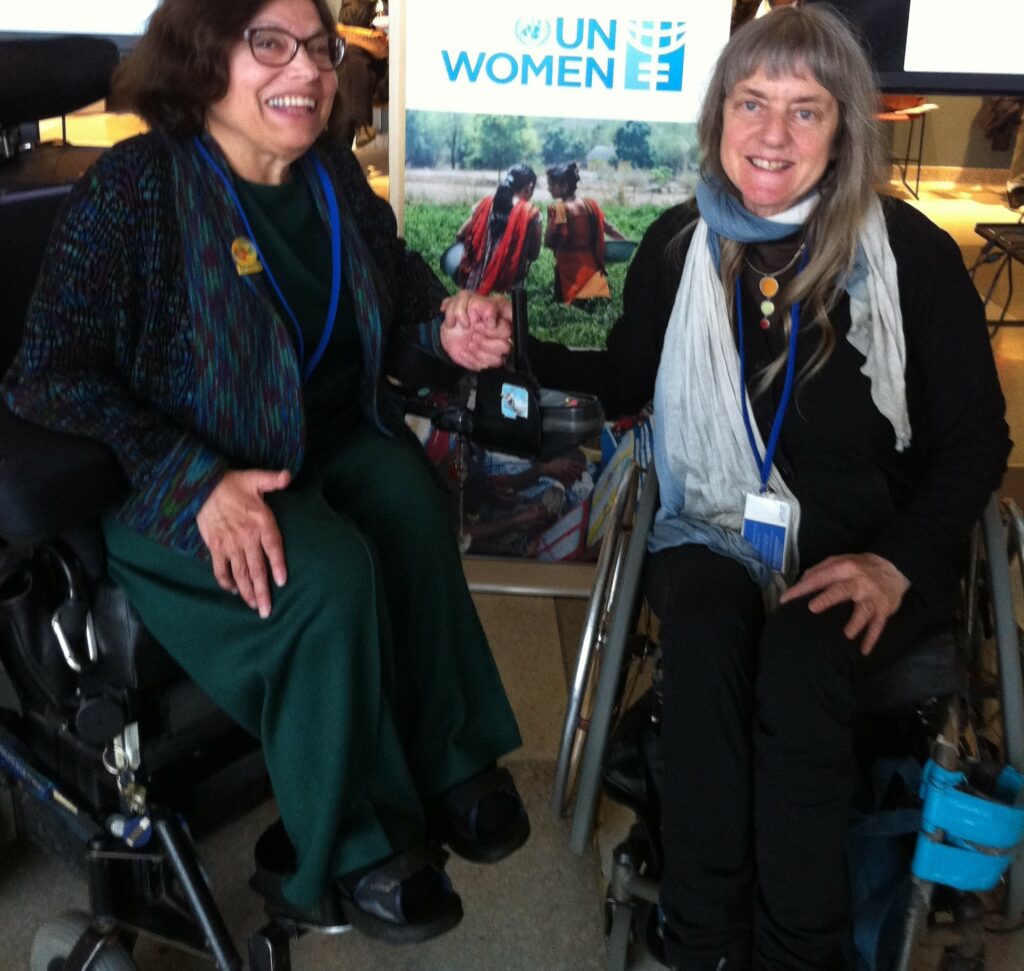
I can feel Judy’s smile. I can see her eyes thinking about one million ideas at once. Judy was always on the phone or on Zoom, with a long line of people waiting to speak with her. But for me, and I have a feeling for many others, I always felt that she was just a text away, and I was just a text away for her, too.
On Friday, I heard Judy was in the hospital, and I sent her my Shabbat shalom message. I’m hoping that she received it that night, in some spiritual way. I hope she will feel the love and support of literally millions of people thinking about her and thanking her, missing her and loving her, as we wait until her live-streamed funeral on Wednesday to come together to express our respect and gratitude.
This is not the end of the story for Judy. Her movie will be released, her book will be read, her podcasts and Crip Camp will be shared, and a whole new generation of people will hear what a girl from Brooklyn accomplished.
Love you Judy. You could not have had a more powerful or impactful or meaningful life.
I know your parents are so proud of you, as I am proud to have been your friend, and will continue to be your friend.
I am sending love to Jorge, and all your family, friends, fellow activists and allies throughout the world.
Susie (Susan) Sygall
CEO
MIUSA (Mobility International USA)
Wednesday March 8 at 10 a.m. ET
The family of Judith “Judy” Heumann invites the community to honor her life. Please find details on Judy’s website about the memorial service, which will be available to attend via livestream.




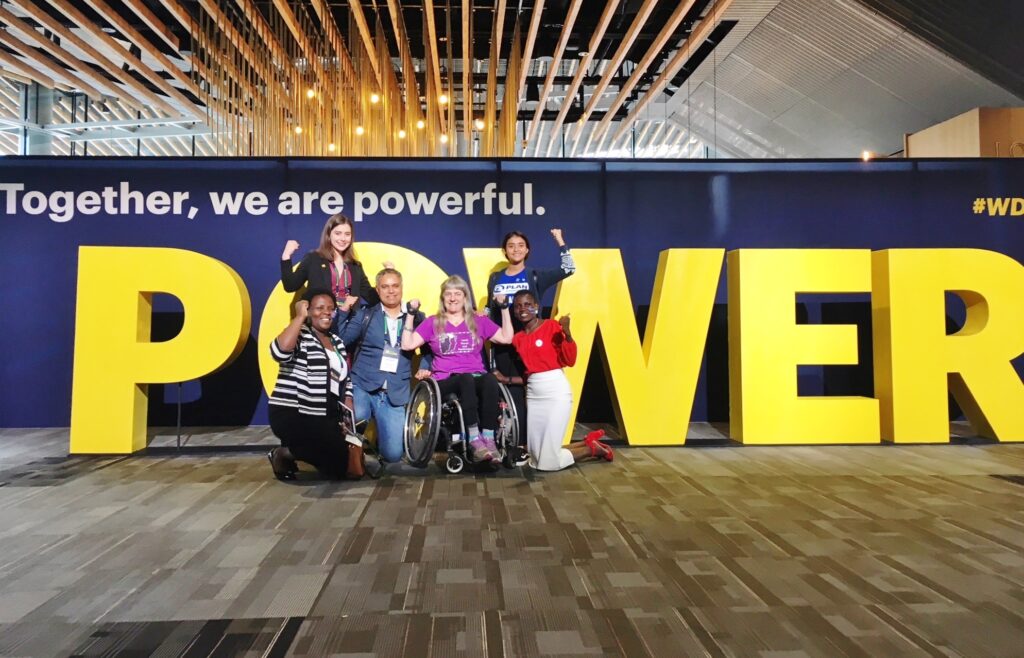

Manage Your Privacy